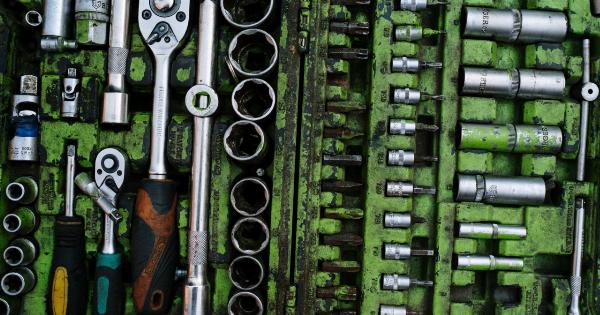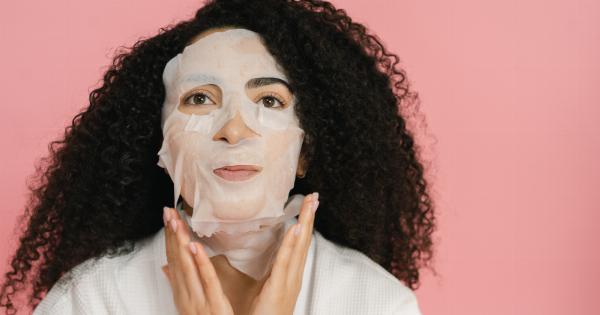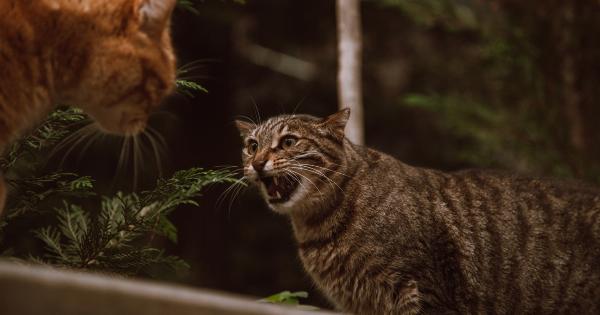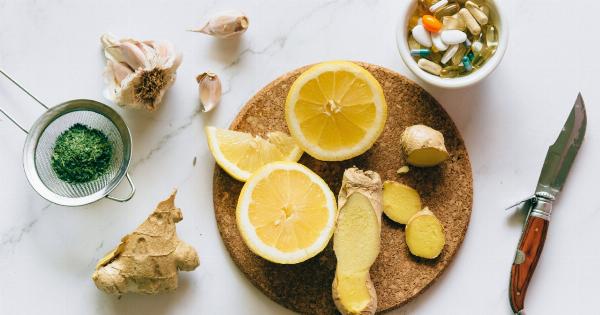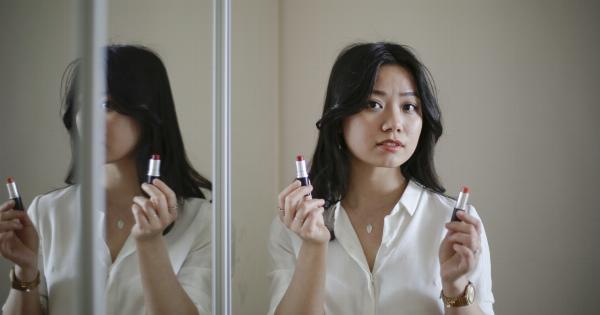Oily hair can be a frustrating and common problem for many people. It occurs when the sebaceous glands in the scalp produce an excess amount of sebum, a natural oil that helps keep the scalp and hair moisturized.
While some sebum is necessary for healthy hair, an overproduction can result in greasy, weighed down, and lackluster locks.
The Causes of Oily Hair
Various factors can contribute to oily hair:.
1. Hormonal Imbalance
Hormonal changes during puberty, pregnancy, or menopause can influence the activity of sebaceous glands, leading to oilier hair.
2. Overwashing
Ironically, excessive washing can strip the hair and scalp of natural oils, causing the sebaceous glands to produce more sebum to compensate.
3. Incorrect Shampooing
Using the wrong shampoo or conditioner, or not rinsing them thoroughly, can leave residue and product buildup, making the hair oilier.
4. Diet and Lifestyle
Consuming an unhealthy diet high in fatty foods or living a sedentary lifestyle can impact the oiliness of your hair.
5. Weather and Humidity
High humidity levels can make your hair more prone to oiliness, especially during warmer seasons.
6. Genetic Predisposition
Some individuals simply have a genetic predisposition for producing more sebum, leading to naturally greasier hair.
The Role of Dry Shampoo
Dry shampoo has become increasingly popular for managing oily hair. It is a quick fix that can absorb excess oil and add volume to the hair without the need for water.
However, constant reliance on dry shampoo can lead to product buildup and other issues.
Mother Nature’s Secret Ingredient for Oily Hair
Instead of reaching for commercial products, you can turn to your pantry for a natural solution to combat oily hair—cornstarch.
The Magic of Cornstarch
Cornstarch, a fine powder made from corn kernels, is an excellent absorbent. Its oil-absorbing properties make it an ideal remedy for oily hair.
How to Use Cornstarch for Oily Hair
Follow these simple steps to make the most of cornstarch’s benefits:.
1. Start with Clean Hair
Wash your hair with a gentle shampoo and conditioner suited for your hair type. Avoid using heavy or overly moisturizing formulas.
2. Dry Your Hair
Thoroughly dry your hair using a towel or a hairdryer. Removing excess water helps the cornstarch adhere better to the hair.
3. Prepare the Cornstarch Mixture
In a small bowl, mix one tablespoon of cornstarch with a few drops of your favorite essential oil, such as lavender or rosemary (optional). The essential oil will not only provide a pleasant scent but may also benefit the scalp.
4. Apply the Cornstarch Mixture
Using a makeup brush or your fingertips, gently apply the cornstarch mixture to the roots of your hair. Concentrate on the areas that tend to become the oiliest. Massage the powder into your scalp to ensure even distribution.
5. Comb Through
Use a wide-tooth comb or your fingers to comb through your hair to distribute the cornstarch evenly. This step will prevent clumps and remove any excess powder.
6. Style as Desired
You can now style your hair as usual, or leave it down for a natural look. The cornstarch will help absorb the excess oil, giving your hair a fresher and less greasy appearance.
Other Natural Remedies for Oily Hair
If cornstarch is not readily available, don’t worry! You can explore other household ingredients that can help manage oily hair:.
1. Apple Cider Vinegar
Its acidic properties help balance the pH level of the scalp and control the production of sebum. Mix one part apple cider vinegar with two parts water and use it as a final rinse after shampooing.
2. Aloe Vera Gel
Aloe vera has soothing properties that can help control oiliness. Apply fresh aloe vera gel to your scalp and hair, leaving it on for 20 minutes before rinsing thoroughly.
3. Lemon Juice
The acidity of lemon juice effectively cuts through oil and leaves your hair feeling refreshed. Mix the juice of one lemon with a cup of water, massage it into your scalp, and rinse it off after a few minutes.
4. Tea Tree Oil
This essential oil has antimicrobial properties that can help combat scalp issues contributing to oily hair. Add a few drops to your shampoo or mix it with a carrier oil before applying to your scalp.
5. Egg White Mask
Egg whites help tighten the scalp and control excess oil. Whisk two egg whites and apply the mixture to your hair. Leave it on for 30 minutes before rinsing with lukewarm water.
Prevention is Key
While natural remedies can help control oily hair, prevention is key to long-term management. Here are some tips to help prevent excessive oiliness:.
1. Adjust Your Washing Routine
Avoid washing your hair every day, as it can strip away essential oils, causing the sebaceous glands to produce more sebum. Aim for two to three times a week and use a gentle, clarifying shampoo.
2. Use Lukewarm Water
Hot water can stimulate oil production, whereas cold water may not effectively remove buildup. Use lukewarm water to wash your hair to maintain the natural balance.
3. Avoid Overbrushing
Brushing too frequently can distribute sebum from the scalp to the hair, making it oilier. Limit brushing to a few times a day and opt for a brush with natural bristles.
4. Choose the Right Hair Products
Opt for lightweight, water-based products that are specifically designed for oily hair. Avoid heavy styling products and silicone-based formulas that can weigh down the hair.
5. Maintain a Balanced Diet
Eat a well-balanced diet with plenty of fruits, vegetables, and lean proteins to support healthy hair and scalp. Avoid excessive consumption of oily and greasy foods.
The Natural Solution to Oily Hair
Oily hair can be a major inconvenience, but it doesn’t have to control your life.
With the secret ingredient found in your pantry, cornstarch, you can easily manage oiliness and achieve fresher-looking hair without resorting to a myriad of chemical-laden products.




